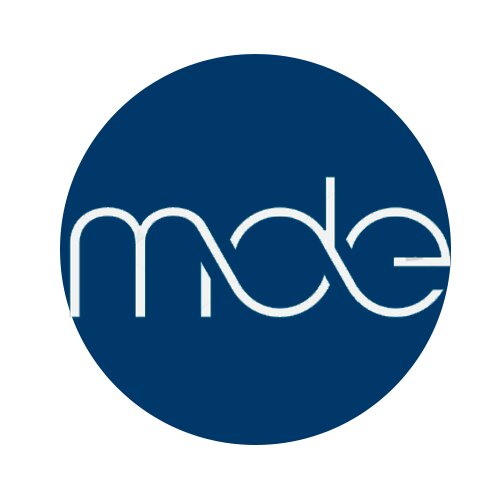Best Lawsuits & Disputes Lawyers in Adeje
Share your needs with us, get contacted by law firms.
Free. Takes 2 min.
List of the best lawyers in Adeje, Spain
Spain Lawsuits & Disputes Legal Questions answered by Lawyers
Browse our 1 legal question about Lawsuits & Disputes in Spain and read the lawyer answers, or ask your own questions for free.
- Me ha estafado un cliente Turco
- Buenos fias Necesito asesoramiento para una estafa de un cliente mío que esta en Turquía, lleva 6 meses diciéndome que me va a pagar 25000e que me solocito comp paga y señal de un pedido de neumaticos el pedido nunca llegó y el dinero tampoco. Me.gustaria saber si tengo opción... Read more →
-
Lawyer answer by BAYAR LAW FIRM
Es posible recuperar su dinero. Para ello, si el incidente es fraudulento, debe presentar una denuncia ante la fiscalía. Para este trámite, le conviene consultar con un abogado en Turquía.
Read full answer
About Lawsuits & Disputes Law in Adeje, Spain
Lawsuits and disputes are a crucial part of the Spanish legal system and are handled according to national law, with particular procedures followed in each region, including Adeje in the Canary Islands. Disputes can arise from various issues such as contract disagreements, property boundaries, tenancy problems, consumer complaints, employment issues, and more. In Adeje, while the underlying legal framework is Spanish civil and commercial law, local courts and protocols may also have an impact. Legal proceedings for lawsuits and disputes aim to resolve matters through negotiation, mediation, or court judgment.
Why You May Need a Lawyer
Navigating the legal system in Adeje can be complicated, especially if you are unfamiliar with Spanish legal processes or do not speak Spanish fluently. Common situations where engaging a lawyer is advisable include:
- If you are being sued or want to initiate a civil lawsuit
- Resolution of disputes involving property, neighbors, or businesses
- Employment disputes with employers or employees
- Contract disagreements with companies or individuals
- Personal injury claims arising from accidents or negligence
- Family law disputes, such as divorce or custody battles
- Debt recovery or payment defaults
- Consumer disputes with businesses or service providers
- Inheritance or succession disagreements
A qualified lawyer can guide you through the procedural steps, paperwork, deadlines, and ensure your rights are protected during negotiations or in court.
Local Laws Overview
Adeje, as part of Spain, follows national laws regarding lawsuits and dispute resolution, mainly governed by the Spanish Civil Code, Civil Procedure Law, and relevant commercial or labor regulations. Notable points specific to Adeje and the Canary Islands include:
- All documents for legal proceedings generally must be provided in Spanish. Official translations may be needed for foreign documents.
- Disputes below certain monetary values may be subject to simplified or expedited procedures in local courts ("juicio verbal").
- The Juzgado de Primera Instancia (first-instance court) in Adeje handles many civil and commercial matters.
- There are strict time limits ("plazos") for bringing certain types of legal actions, so acting promptly is essential.
- Mediation is increasingly encouraged as a first step before litigation, especially for civil and family disputes.
- The losing party may be ordered to pay the legal costs of the winner, although there are exceptions.
- Foreign nationals and non-residents have equal access to the courts, but may face additional bureaucracy.
Frequently Asked Questions
What types of disputes are most common in Adeje?
Common disputes in Adeje include property disagreements, tenancy issues, contract disputes, inheritance questions, employment conflicts, and consumer complaints, often linked to the tourism and property sectors.
Can I file a lawsuit if I am not a Spanish resident?
Yes. Both non-residents and foreign nationals can file lawsuits in Adeje, though you may need to appoint a local address for legal notifications and may be asked to provide translated documents.
What is the role of mediation in dispute resolution?
Mediation is a voluntary process where a neutral third party helps both sides reach an agreement. It is often faster and less costly than going to court and is encouraged for civil, commercial, and family law disputes.
How long does a typical lawsuit take in Adeje?
The timeline varies based on complexity, court workload, and type of dispute, but standard civil proceedings can take several months to more than a year. Mediation or settlement can conclude matters more quickly.
What are the costs involved in filing a lawsuit?
Costs include court fees, lawyer's fees, translator or interpreter fees if needed, and potentially expert witness fees. The losing side may be required to cover the winner's legal costs in many cases.
Is legal representation mandatory in court?
For most lawsuits in Spanish courts, especially for amounts over 2,000 euros or for complex disputes, you must be represented by a qualified lawyer (abogado) and a procedural representative (procurador).
What should I do if I receive a legal notice or lawsuit?
Contact a qualified lawyer immediately. Do not ignore court documents as strict deadlines apply for filing responses, and missing them can have serious consequences.
Can I appeal a court decision?
Yes, Spanish law allows parties to appeal most first-instance court decisions within a defined period, usually 20 days from notification of the judgment.
Are court proceedings conducted in Spanish?
Yes, all proceedings are held in Spanish. If you do not speak Spanish, hiring a lawyer and arranging for an interpreter is highly recommended.
Do I need to appear in court personally?
In many cases, your lawyer and procedural representative can appear on your behalf, but personal attendance may be required for testimony or in certain types of cases.
Additional Resources
If you need information or support regarding lawsuits or disputes in Adeje, consider contacting or consulting the following:
- Ilustre Colegio de Abogados de Santa Cruz de Tenerife - the provincial bar association that can recommend local lawyers
- Juzgado de Primera Instancia de Arona (competent court covering Adeje for civil matters)
- Oficina de Atención al Ciudadano (Citizen Advice Office), often located at town halls
- Local consumer protection agencies for disputes with businesses
- Chambers of Commerce for commercial disputes or business mediation
- Non-governmental organizations offering legal assistance to residents and foreigners
Next Steps
If you find yourself involved in a lawsuit or dispute in Adeje, take the following steps:
- Gather all relevant documents and information about your case
- Consult a qualified lawyer with experience in Spanish civil procedure
- If you do not speak Spanish, ask for assistance with translation or interpretation
- Check deadlines and act promptly to preserve your legal rights
- Explore mediation or settlement options before proceeding to court
- Keep detailed records of all communications and legal steps taken
- Follow your lawyer's advice carefully throughout the process
Taking timely and informed action is key to protecting your interests in any lawsuit or legal dispute in Adeje.
Lawzana helps you find the best lawyers and law firms in Adeje through a curated and pre-screened list of qualified legal professionals. Our platform offers rankings and detailed profiles of attorneys and law firms, allowing you to compare based on practice areas, including Lawsuits & Disputes, experience, and client feedback.
Each profile includes a description of the firm's areas of practice, client reviews, team members and partners, year of establishment, spoken languages, office locations, contact information, social media presence, and any published articles or resources. Most firms on our platform speak English and are experienced in both local and international legal matters.
Get a quote from top-rated law firms in Adeje, Spain — quickly, securely, and without unnecessary hassle.
Disclaimer:
The information provided on this page is for general informational purposes only and does not constitute legal advice. While we strive to ensure the accuracy and relevance of the content, legal information may change over time, and interpretations of the law can vary. You should always consult with a qualified legal professional for advice specific to your situation.
We disclaim all liability for actions taken or not taken based on the content of this page. If you believe any information is incorrect or outdated, please contact us, and we will review and update it where appropriate.
Browse lawsuits & disputes law firms by service in Adeje, Spain
Adeje, Spain Attorneys in related practice areas.










